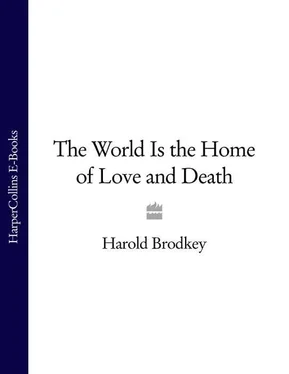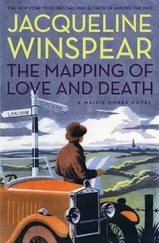1 ...7 8 9 11 12 13 ...19 “Oh, yes,” says Ida, as if delighted. “Twins, certainly.” She grasps Lila’s hand. Such will, such fine-boned will is in Ida that Momma smiles—inside her other moods she feels she is in a schoolyard again, a girl.
Ida’s sense of romance progresses by delicacies of parody—i.e., it is always two steps from the real—toward the heartier implications: commands, exploitations, secrets, alliances, bondages, rages: a display of self, an outbreak of darkness; she wants to bloom as a flower, a woman, a girl, a boy, a man. (Momma wants to bloom like that, too.) Ida names herself parodistically: “I kiss like John Gilbert, don’t I? Don’t you think so?”
Ma ought to say, Oh, yes , and lean back, and so on.
But Momma is not tamed, she is masochistic and flexible, and ashamed of that in relation to men, and crazy and vengeful as a result. Momma is crazy and vengeful freshly at every occasion of wrong. She is doing a thing: she is blooming as someone who cannot be tamed by sweat-mustached Ida.
She can fake being ladylike and distant from things and she can fake being commanding—she can imitate Ida. Her denial, her fakery are comic in her style. She sits facing forward, and she refuses to alter her posture.
A passionate woman being unmoved is funny.
Ida titters.
Momma dislikes comedy because of her sensibility—disgust and inner temper: a heat: distrust—these don’t turn into bearable jokes for her without contempt—for herself, for everyone—and she has too much physical merit still, although less surely, to hold herself, or romance, or the possibilities of a courtship moment, in contempt.
Momma’s outrageous and inwardly wretched comedy taunts Ida, who, childlike, then tugs at Ma’s shoulder.
But the tug is elegant—and startling. How startling Ida tends to be. Self-loving rather than making a gesture that actually included Momma: Ida needs to be loved as the good child whose every move embodies innocence and prettiness rather than as the active doer she is.
Momma resists all force applied to herself. “No,” Momma says. “Absolutely no.” She is not breathing at all. Then she is breathing lightly. Then heavily. She says, gently scathing, “Eeeny, meeny, miney, mo, I caught a Lila by the toe —oh, Ida …” Then, leaning, straight-backed, at a slant away from Ida, a summing-up: “No one can count on you.”
Ida, in her momentum, makes flirtatious offers of obedience: “Everyone can count on me. I am your slave—Lilly—you know that.” Then, owlishly: “You know you can count on me lifelong.” Then: “Ly—fff(i)ff—longgg—” The length she drew the word to was roughly the span of attention before one blinks mentally and registers what is said—it was the equivalent of five or six syllables. Her voice is not torn by love and desire—i.e., by folly. Nothing is implied of any state of feeling other than a sophisticated one—i.e., one in which it is known that attachments come and go. Her promise is a parody of promises, it has no human ordinariness. It has intelligence and cruelty, though, and longing.
Momma straightens her head and does this and that, and then it emerges, as in a charade, that she is listening in an ordinary human way: she listens to the promise—now a memory in the air. She is smiling dimly, unreadably, beautifully.
In the haze of illusions and realisms, female lawlessness and its codes, and female parodies, and female truths give way apparently, and Momma turns her head and smilingly, tacitly listens with the calm maternal-innocent set of her face, which then alters into a lover’s wicked stare—accusing and reckless. This hint at the humiliation of the mother by the lying boarding-school seducer, Ida, is a parody, too; but her being a lover and challenging Ida, that part, is not parody, so it’s all different now: it’s physical and remorseless, like some affairs that kids have in high school.
That makes her vulgar —i.e., blunt and obvious—and sexual. This is rebellion on a giant scale, to be so local with Ida. Ma is claiming to be a more serious person than Ida by bringing in this real stuff in this championship way.
Ida is jocular about rebellion. Ida treats all claims to leadership as childish, even her own. Ida puts a small kiss—shyly—on Momma’s jaw.
A gust of feeling whirls Ma around. But she is not a mother, not a child—those are not sexual beings. In this assignation, Momma’s sense of what is to be done is real; Ida’s taste, and sense of things, prefers the symbolic: the summing-up.
Ma feels that if she is honest with herself , she is, as a person (a sexual body and a quick mind), very little better off, if at all, with Ida’s understanding than she is with S.L.’s.
Ma tugs at the tail of her bandanna. “S.L. may be in the house,” she says, with almost rabid sorrow: she holds up that hoop for Ida to go through.
Ida grimaces—it’s a snarl: that was stylish back then, for a stylish woman to mimic a gangster or something. See, Ma is punishing Ida by invoking “a law” that makes Ida behave. Ida grabs Lila by the elbows and says, “You Garbo!” Elusive woman. Garbo isn’t married. It is Garbo-minus , so to speak, that Momma is. This is in Ida’s face as she moves back to her chair, thwarted, probably enraged.
Lila feels somewhat lower-class, however. Momma says, “I never paid attention in school, so I’m easy to know.” She says, “You want another drink? You want another sandwich?”
Ida says, “Does S.L. drink?”
“He’ll be sober—when he comes around the mountain.” It is truly jolting when Momma breaks her own style open and imitates Daddy with all the depth of knowledge she has of him physically.
Ida stares at her.
Lila says, “I can read your mind. I know what you’re thinking.” She swings her foot.
“What am I thinking?”
“That’s for me to know and you to find out.” Momma says it seriously, in a musical voice. Ma does not know how small-town this is, but then—with gooseflesh and a sinking in her stomach and a light beading of sweat along her back—she can tell what a mistaken device it is in Ida’s opinion.
It is Homeric and not Tantric, the way the erotic and the spiritual merge in Ma; but if you use school ideas of things, the erotic is a matter of grasp and idea—that is, a demystification of feelings for the sake of excitement—and it is not spiritual at all: it is merely modern, then. Feelings reside in art and in sex but not in school, unless perceptions and illusions are counted as feelings, which is what Ida does and Ma wants to do—things coming out even, correct answers, being perfect: Ida wants those and the sense of those and the appetite for those to be counted as feelings. Ma is another type , but she has schoolish yearnings.
The reason school is the way it is is that in a classroom there is only one teacher, one power: a tyranny …
In life, there are always at least two people, or you can’t call it life.
“If I said now Ida is my friend, you’d agree, but if I acted on it, woe is me, and that’s where the trouble starts.” Ma says this hastily, as if S.L. might walk in any moment, but then she slows down and finishes saying it in a stately, melodious way. But her mouth and eyes are sultry—are gusty with feeling; she is so complicated now that no scientific theory can be as hard to unravel as her mood is. She is epically grownup in this way.
Ida, with a curious thwacking gesture of her knees against each other, matches Momma in complexity: she may now be the most grownup person in the world. “Let’s not go into what’s wrong. I don’t believe in diagrams,” Ida says. Lightly.
Ma says, “If we were a friend to one another, I could take you for granted and you wouldn’t put up with that for one second.”
Читать дальше












